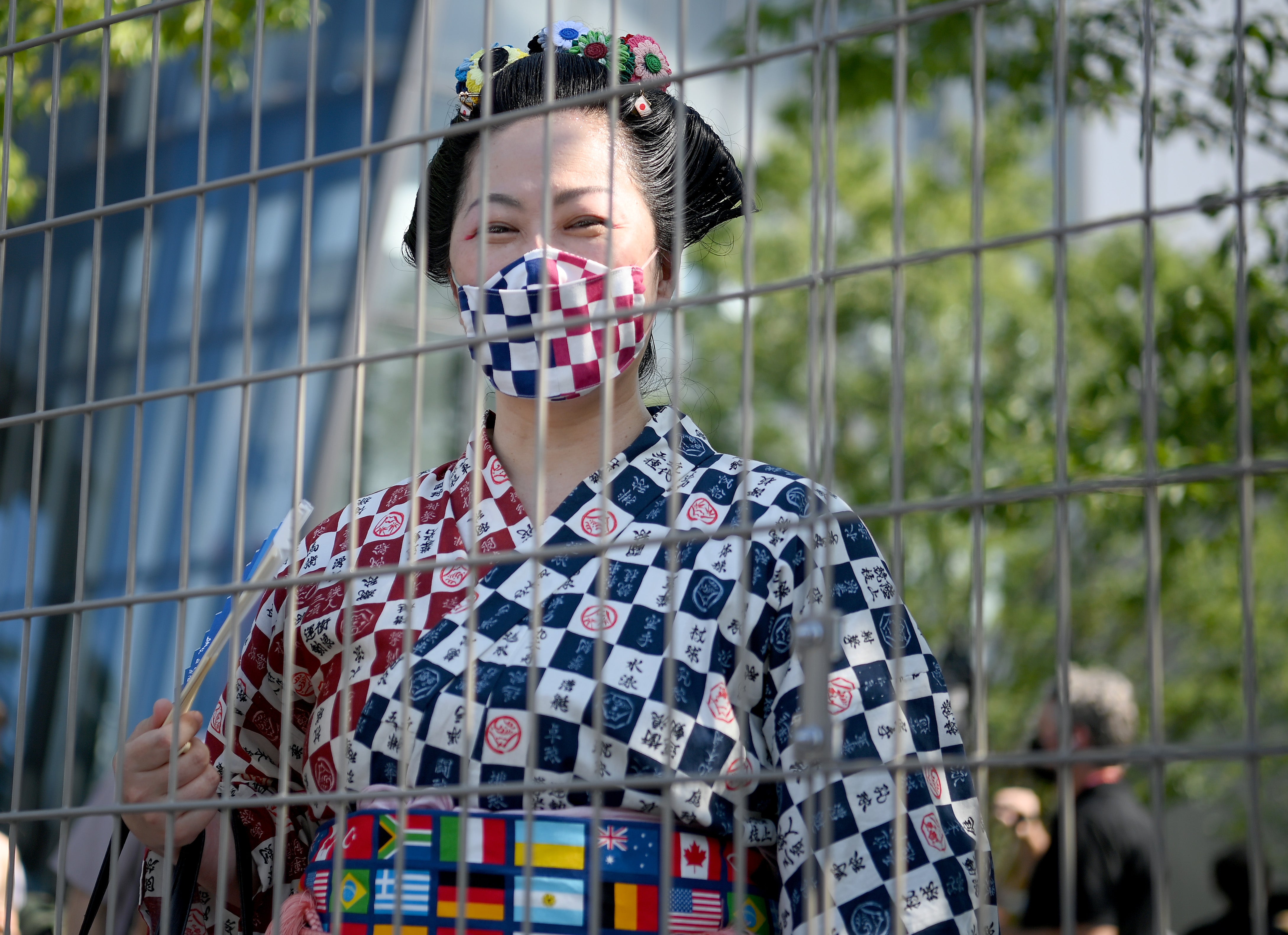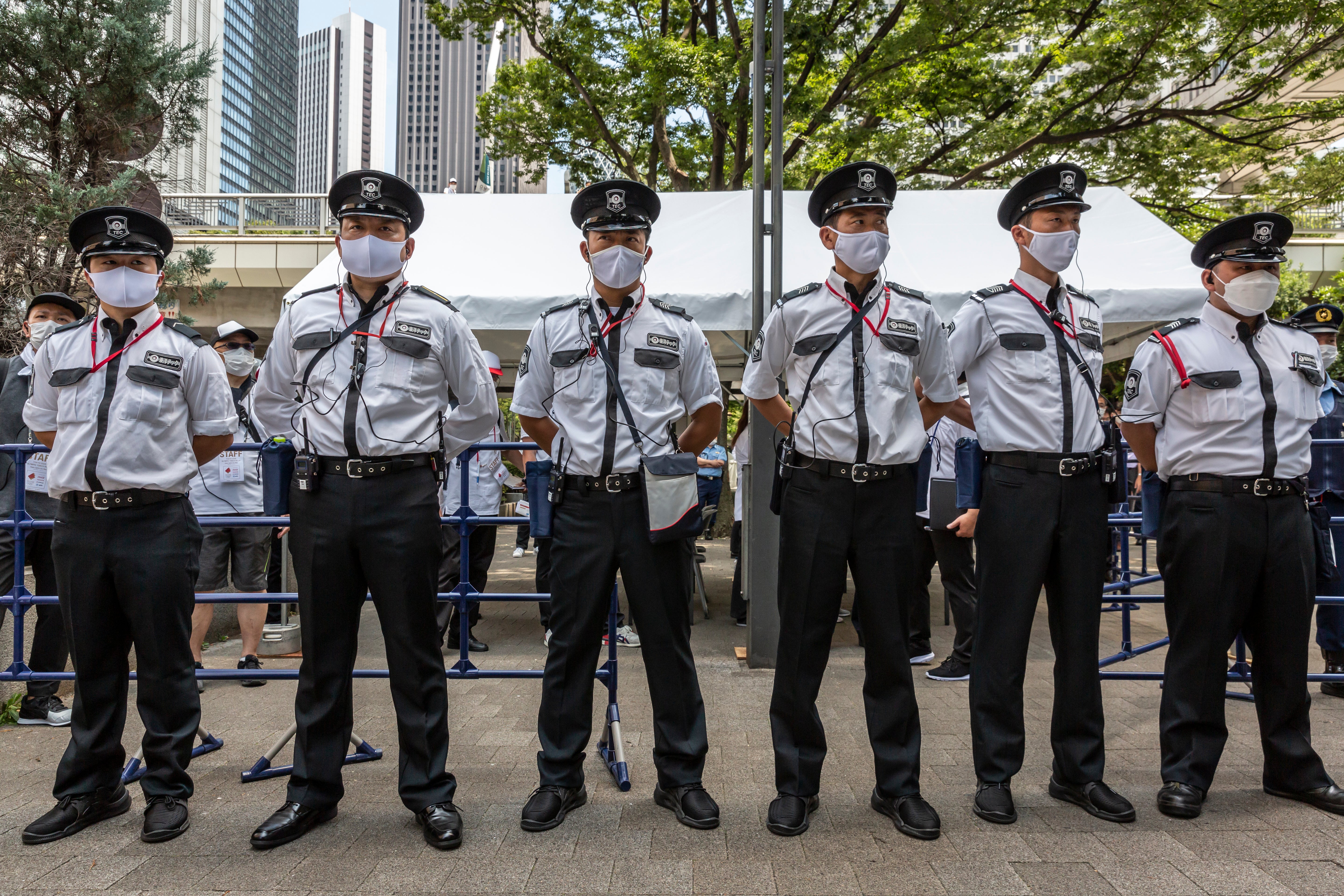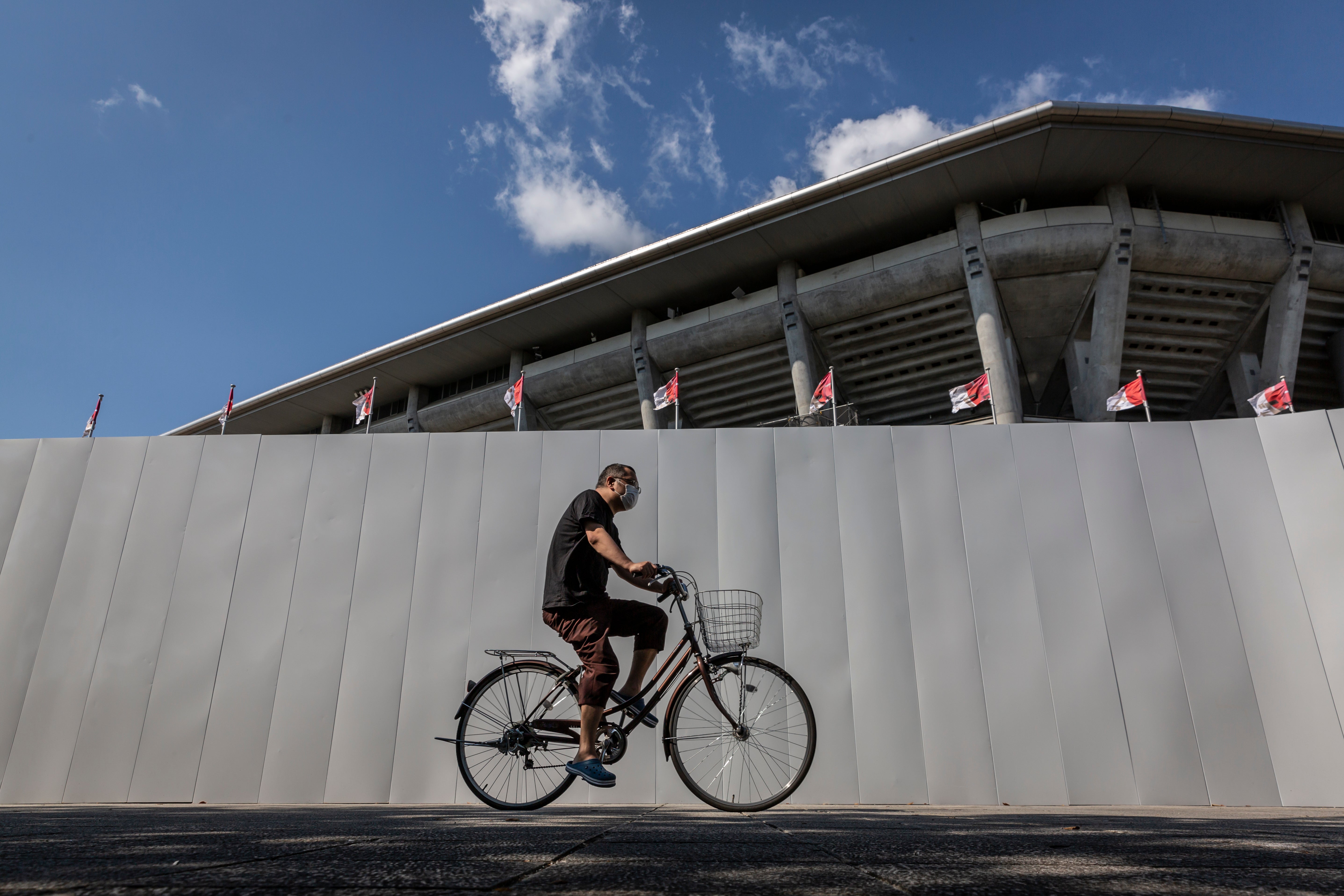Fortress Olympics: peak security measures dampen the mood as the games begin
An intensive security operation keeps the games from the Japanese public; a public which is struggling to muster enthusiasm for the events

Your support helps us to tell the story
From reproductive rights to climate change to Big Tech, The Independent is on the ground when the story is developing. Whether it's investigating the financials of Elon Musk's pro-Trump PAC or producing our latest documentary, 'The A Word', which shines a light on the American women fighting for reproductive rights, we know how important it is to parse out the facts from the messaging.
At such a critical moment in US history, we need reporters on the ground. Your donation allows us to keep sending journalists to speak to both sides of the story.
The Independent is trusted by Americans across the entire political spectrum. And unlike many other quality news outlets, we choose not to lock Americans out of our reporting and analysis with paywalls. We believe quality journalism should be available to everyone, paid for by those who can afford it.
Your support makes all the difference.As the Tokyo Olympics gets underway, the atmosphere at the Olympic stadium is heavy with nervous expectation. And it’s not just the din of cicadas singing in the trees, or the humidity that clings to your clothes, that’s causing people to feel uneasy.
Along the tree-lined streets leading to the stadium, a phalanx of traffic police, security guards and monitors stand ready. Red and white traffic signs and barriers have been erected to direct general traffic one way, and Olympics-related traffic another. Access to a nearby highway is cut off.
Closer to the stadium’s entrance, more personnel stand by. And there are yet more barriers, including a 15-foot makeshift wall skirting the perimeter of the stadium, impeding clear views of it. Ahead of that barrier stands a fence of about the same height, which seems to roll around the entire circumference of the stadium.
And at the main gate, where athletes, delegates, media and dignitaries slide by in silent cars and shuttle buses, an airport-style checkpoint awaits, staffed not just with volunteers, but private security, police and military. Beneath two large tents, scanners, monitors and airport-style bag checks ensure accredited people only can enter.
If you didn’t know better, you’d think this operation was for a sensitive government facility or a high-security prison, rather than the site of the Tokyo games.
The same level of military precision and efficiency awaits at the Athletes Village, where thousands of Olympians from all over the world are ready to compete.
And yet, many locals in Tokyo seem to be blissfully unaware of the well-oiled Olympic machine operating right under their noses.
Across the street from the Olympic stadium, patrons sit down for afternoon tea in a luxury hotel, apparently unconcerned with what’s going on right next door.
Further afield, in the popular Roppongi district of Tokyo, a young couple – a Thai-Japanese woman and a Spanish man – settle down to beer and pizza.
After all, it is a four-day weekend, and thoughts of the current state of emergency, which discourages social gathering and serving alcohol, seem far from people’s minds.
“I don’t have any information,” she says, lamenting the apparent fact that, somehow, she isn’t getting much news or promotion about the games.
On the main drag in Roppongi, a few minutes up the road, flags declaring “Tokyo 2020” have been replaced with banners promoting an art exhibition.
Her partner agrees, adding that they weren’t really paying much attention to the games.

Their lament is shared by a twenty-something Tokyo native: “I didn’t really pay attention to it to be honest, but I wish we could have some public viewing spots.”
Another Tokyo resident, a woman in her thirties, says she will watch the games, but her voice reveals a distinct lack of enthusiasm: “I’ll probably be watching online through news and insta stories for the highlights,” she says, using the Japanese word for Instagram.
But it’s not all doom and gloom. One long-term Japan resident, an expat working in the tech industry, lives close to the Olympic stadium.
While he admits that the security operation nearby has caused him some inconvenience, he will watch the games after all. “I live near the stadium. There’s now a huge big wall around it with a lot of police,” he says.
“We got a card from Japan Post [saying] that, because of the many road blocks, they can’t guarantee timely delivery of packages during the Olympics.”
“[I] was hoping to get a glimpse of the cycle race this weekend, but that also seems a challenge.” He plans to watch the games on television instead.
Another long-term Japan resident, a Frenchman in his fifties, notes: “As I was born in 1964 during same time [as the first Tokyo games], I never imagined the Tokyo Olympics 57 years [later] will be virtual on my iPhone.”
Like the Frenchman, many in Tokyo plan to watch the games remotely on television, or catch highlights on mobile and web platforms such as YouTube and Instagram.
A Japanese man in his sixties notes: “[I’ll be]watching television and streaming [on my computer] while eating sashimi (raw fish).”
Another expat says his hope is to watch mountain biking and canoeing in person. Failing that, he is excited to watch some of the sports that are making a debut at these games. “Since karate was just added this year, that would be fun to watch. BMX and skateboard as well.”
He adds: “My daughter wants to watch the field events in track and field since she does the javelin herself. My son, besides track, probably [wants to watch] soccer, even though he doesn’t play it. While he is half American, he will probably be rooting for team Japan!”

Back at the Athletes Village, the enthusiasm for the games is much more palpable than at the stadium – even though there was a sprinkling of domestic tourists at the stadium area.
On the way to the Olympic village on Thursday, a taxi driver was giddy at the thought of carrying an actual Olympian or a member of the foreign press.
Asked whether he is looking forward to the games, he replied: “Yes, I am. It’s tomorrow, right?”
But just as quickly, his excitement is tempered with, “Yes. Very sad that there are no spectators this time.”
At least for that cabbie, who plans to watch the games on television, the Tokyo games is something that has been a long time coming: “It’s been over 50 years since the last Olympics, so this Olympic will be my first.”
His sentiment was shared by a volunteer at the Athletes Village, who said he was happy to take up the rare opportunity to support an Olympic event.
Above all, he told me proudly, his uniform is a hit with Olympians at the village: “Athletes have taken photos of me wearing it.”
Volunteers at the Tokyo games wear a matching blue, grey and white T-shirt with “Tokyo 2020” printed on it, grey shorts, and grey, blue and white trainers. Like so much of the Olympics, it’s a somewhat muted look – a shadow, perhaps, of what it might have been.
Join our commenting forum
Join thought-provoking conversations, follow other Independent readers and see their replies
Comments